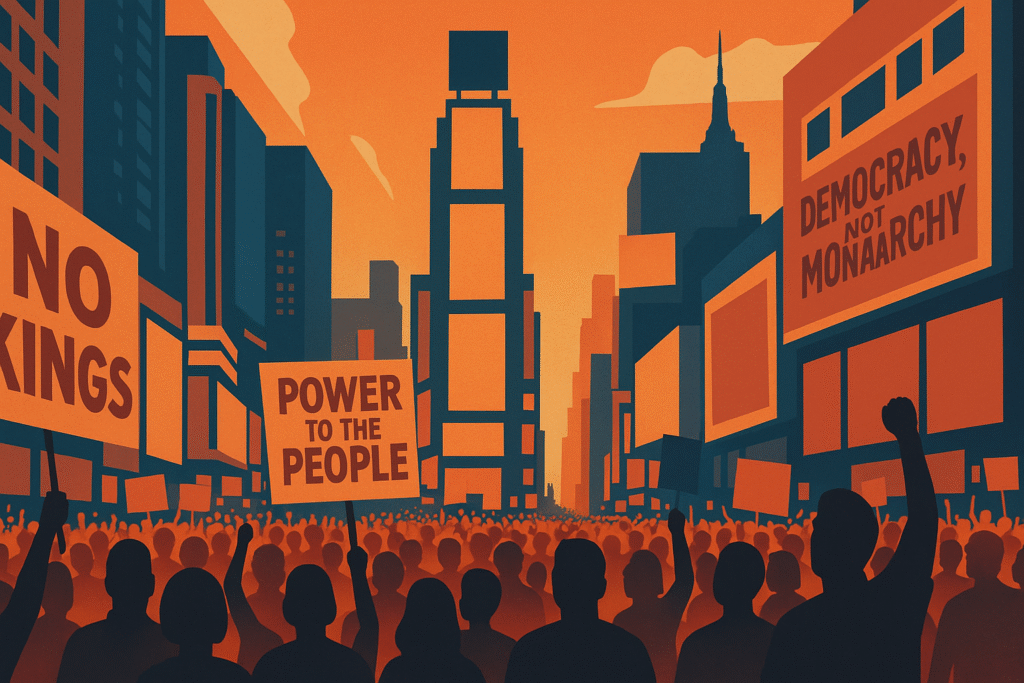In one of the largest demonstrations seen in New York City this year, more than 100,000 people flooded the streets under the slogan “No Kings” — a symbolic call against absolute authority and unchecked power. The march, which began in Times Square and stretched across several major neighborhoods of Manhattan, sent a powerful message of civic defiance toward the current federal administration’s policies on immigration, civil rights, and governance.
A Peaceful Yet Powerful Message
Organized by a coalition of activist groups and grassroots movements, the demonstration maintained a largely peaceful tone throughout the day. Protesters carried banners reading “Power to the People” and “Democracy, Not Monarchy,” as they chanted slogans denouncing authoritarian practices and government overreach.
According to the New York Police Department (NYPD), despite the massive turnout, the event proceeded without major incidents or arrests. Officers were stationed along key intersections in Midtown and the West Side to manage traffic flow and ensure safety as the crowd advanced through the city.
Voices from the Crowd
Many demonstrators described their participation as a stand for democratic accountability.
“We’re here to remind those in power that no one is above the law,” said Sarah Thompson, a protester from Queens. “The ‘No Kings’ message means equality, justice, and shared responsibility.”
Students, labor unions, and community leaders joined the movement, calling attention to what they described as a growing sense of political fatigue and mistrust in federal leadership.
Symbolism and Broader Impact
The “No Kings” slogan, inspired by America’s founding anti-monarchical ideals, has evolved into a broader critique of political centralization and elitism. Organizers emphasized that the movement was not tied to any single party but represented a collective demand for transparency, representation, and restraint of executive power.
Political analysts note that the protest reflects rising tensions in urban America, where frustration over economic inequality, immigration policy, and social justice has become increasingly visible in public spaces.
Citywide Disruptions
The march led to temporary road closures and transportation delays, especially around Times Square, Bryant Park, and Union Square. The Metropolitan Transportation Authority (MTA) issued advisories urging commuters to use alternative routes and expect extended travel times throughout the afternoon.
Looking Ahead
Organizers announced plans to hold similar demonstrations in Chicago, Washington D.C., and Los Angeles in the coming weeks, marking what could become a national campaign for democratic reform.
“The goal is not chaos,” said one of the event coordinators. “It’s about awakening civic responsibility and reminding the government that leadership must serve, not rule.”
As the crowd dispersed peacefully into the evening, New York once again proved its reputation as a city where free speech, protest, and democracy converge on its bustling streets — with a clear message echoing through the night: “No Kings — only the people.”



